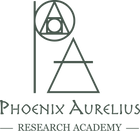Written By Norianna Diesel
What is Bee Propolis?
The word “propolis” is derived from Ancient Greek (própolis), and ultimately meant "bee-glue". Honeybees produce this resinous mixture by combining their own saliva, beeswax, and substances they collect from tree buds, sap flows and other botanical sources. This created mixture then acts as an antiseptic to prevent microbial infection of any of the internal contents of the hive, including larvae, honey, and combs. (Honeybees apply propolis to areas of the hive where new combs are to be attached, thus creating a smooth, sterile surface). They also release baby eggs into new comb cells, only after coating them with propolis, which ensures the healthy development of the eggs. This thin layer of propolis that honeybees put inside the hive also creates protection against external moisture, predators, uncontrolled airflow, and allows for consistent humidity and temperature (35°C) within the hive. Furthermore, propolis allows hives to stay healthy, despite the close proximity of the honeybees to one another, as it contributes to an aseptic internal environment.

What is in Propolis?
Honey bees produce three products: honey, royal jelly, and propolis. Propolis is composed mainly of resin (50%), wax (30%), essential oils (10%), pollen (5%), and other organic compounds (5%).
The important organic compounds found in bee propolis are:
- Phenolic compounds, esters, flavonoids, terpenes, beta-steroids, aromatic aldehydes, and alcohols
-12 different flavonoids: pinocembrin, acacetin, chrysin, rutin, luteolin, kaempferol, apigenin, myricetin, catechin, naringenin, galangin, and quercetin
- 2 phenolic acids: caffeic acid and cinnamic acid
- 1 stilbene derivative called resveratrol
Propolis also contains important vitamins:
-Vitamins B1, B2, B6, C, and E
-Minerals such as magnesium (Mg), calcium (Ca), potassium (K), sodium (Na), copper (Cu), zinc (Zn), manganese (Mn), and iron (Fe).
-And a few enzymes: succinic dehydrogenase, glucose-6-phosphatase, adenosine triphosphatase, and acid phosphatase

Historical Uses:
The use of bee products can be traced all the way back to circa 13,000 BC! At a certain point, humans began to domesticate their wild bee friends through introducing new hives in the shapes of hollow logs, wooden containers, pottery, and straw baskets, eventually leading us to modern day apiculture, or bee-keeping.
Archaeological excavations have shown that honeybees were kept in Ancient Egypt, primarily in lower Egypt. (The honeybee was even used as a hieroglyph for the terrain symbol of Ancient Egypt). Supposedly, the Ancient Egyptian priests would use a mixture of melted down honeycomb to prepare the body and bandages for mummification.
Ancient Greece had a system of apiculture, and were likely the first civilization to take up beekeeping as an agricultural practice. Around 400 BC, the ancient region of Attica had 20,000 beehives, and was prized for its honey, as it was believed to possess medicinal qualities. Aristaeus (minor God in Greek mythology), regarded as the father of apiculture, is one of the most enigmatic figures in ancient Greek religion. Supposedly, Aristaeus passed on his knowledge of beekeeping gleaned from "the muses" onto mortals. The Greeks also used honey to preserve some of their dead, particularly soldiers who died away from home.
Hippocrates (460–377 BC), considered to be the father of modern medicine, prescribed propolis to help heal sores and ulcers, both external and internal.
Pliny (Roman), and Pedanius Dioscorides (Greek), both authorities on botanical knowledge, refer to the medicinal properties of propolis in some of their writings.

Medicinal Uses Today:
Propolis has antiseptic, anti-inflammatory, antioxidant, antibacterial, antimycotic, antifungal, antiulcer, and immunomodulatory properties!
Propolis is often used in skincare products because of its anti-allergy, anti-inflammation, and antimicrobial properties, as well as its positive action on collagen synthesis.
Studies have shown propolis to be very effective for acne vulgaris and healing wounds, (in part due to increasing the collagen content in tissues).
The following table shows where propolis can be used for benefit:

Propolis is a handy helper for reducing, and even preventing, the common cold/flu, as well as other respiratory diseases according to this paper.
Propolis can also stop Herpes Simplex Virus 1 and 2 from reproducing! The common conventional treatment for cold sores and genital herpes is Zovirax, and researchers found that subjects using propolis had their herpes lesions heal faster than subjects just using Zovirax.
Of all the bee products, propolis has been shown to have the highest level of antifungal activity, including effectiveness against Candida albicans!
"Propolis has shown efficacy against brain, head and neck, skin, breast, liver, pancreas, kidney, bladder, prostate, colon and blood cancers." writes Seema Patel in one article.
One study shows promising effects of Brazilian Green Propolis for chronic kidney disease.
Another study shows improvement of glycemic and some serum lipid levels in patients with Type 2 Diabetes after taking propolis for 12 weeks.
There is also positive research showing the benefit of consuming propolis for treatment of infertility in women with mild endometriosis.

In Conclusion:
Bee propolis is an amazing substance, as are all the gifts of our wonderful honeybee friends.
All in all, propolis has an excellent clinical safety profile, with no known toxic effects described, meaning, it is generally safe to take for the average person.
Of course, like with all things derived from nature, the quality and sourcing matters. Propolis is known to have different active constituents depending on where the bees are working. It is always important to source your bee products from ethical beekeepers, to help ensure fair treatment of the hives, and for greatest health and longevity of the hives.
We do carry our very own Bee Propolis Spagyric Tincture in our online apothecary. The propolis is sourced from a small bee farm in South Bulgaria, whose beehives are located in a forest region. Their propolis is scraped off of bee frames and hives by hand, and is as pure as it gets. If you have ever had propolis before, you will be familiar with its slight "bite" or "burn" when consuming it. Our spagyric tincture really packs a punch when using it orally, and will leave a unique "propolis feeling" at the back of the throat. I personally love it, and it is definitely one of my new favorite items in stock. (The frequency of bee medicine can also be subtly felt through taking a few sprays of this spagyric tincture if one is inclined to feel the more subtle realms!)
Resources:
Pasupuleti VR, Sammugam L, Ramesh N, Gan SH. Honey, Propolis, and Royal Jelly: A Comprehensive Review of Their Biological Actions and Health Benefits. Oxidative Medicine and Cellular Longevity. 2017;2017:1-21. doi:https://doi.org/10.1155/2017/1259510
Welch A. Gut Check: Is Bee Propolis Good for Your Gut Microbiome? EverydayHealth.com. Published November 2, 2022. Accessed October 2, 2023. https://www.everydayhealth.com/digestive-health/gut-check-is-bee-propolis-good-for-your-gut-microbiome/
Xue M, Liu Y, Xu H, et al. Propolis modulates the gut microbiota and improves the intestinal mucosal barrier function in diabetic rats. Biomedicine & Pharmacotherapy. 2019;118:109393. doi:https://doi.org/10.1016/j.biopha.2019.109393
Perot Saelao, Borba RS, Ricigliano VA, Spivak M, Simone-Finstrom M. Honeybee microbiome is stabilized in the presence of propolis. Biology Letters. 2020;16(5):20200003-20200003. doi:https://doi.org/10.1098/rsbl.2020.0003
Wagh VD. Propolis: A Wonder Bees Product and Its Pharmacological Potentials. Advances in Pharmacological Sciences. 2013;2013:1-11. doi:https://doi.org/10.1155/2013/308249
This Bee Byproduct Kills Parasites, Candida & Herpes (Plus, One Study Found It Increases Fertility by 40%!). Dr. Axe. https://draxe.com/nutrition/bee-propolis/
Folk History and Use of Propolis. BeeVital Propolis. Published October 27, 2021. Accessed October 2, 2023. https://beevitalpropolis.com/blogs/news/folk-history-and-use-of-propolis
Kuropatnicki AK, Szliszka E, Krol W. Historical Aspects of Propolis Research in Modern Times. Evidence-Based Complementary and Alternative Medicine. 2013;2013:1-11. doi:https://doi.org/10.1155/2013/964149
Ethics A. Exploitation of bees by humans. Animal Ethics. Published August 10, 2016. https://www.animal-ethics.org/exploitation-of-bees-by-humans/







